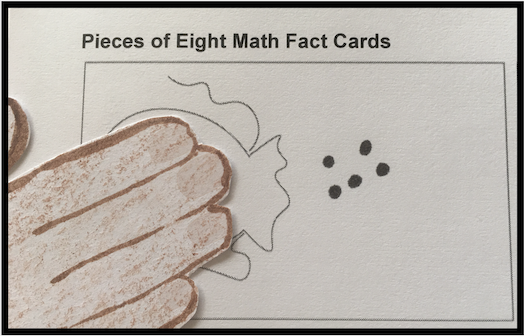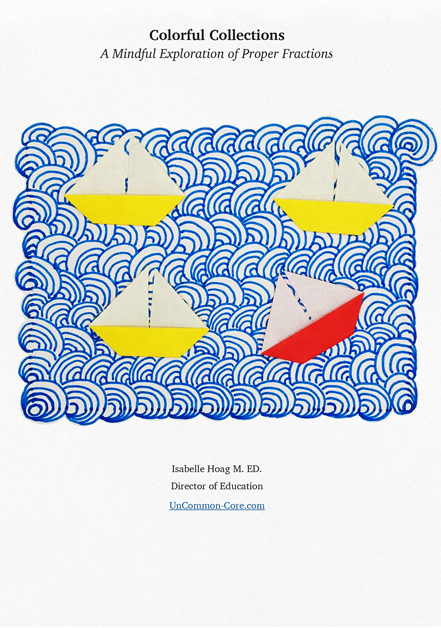
Incidental learning occurs when your students engage with an activity for the fun of it and just happen to learn something along the way.
Contrast incidental learning with intentional learning from the point of view of the student. A student using a spaced repetition technique with a deck of flashcards is directly working toward a learning goal.
Students playing Pieces of Eight may not be aware of working toward a learning goal, however, as part of the game, they discover and record all the number bonds that make up eight.
Benefits of Incidental Learning
Incidental learning, also known as play, can have advantages over more formal settings. Many students worry about their performance, behavior, or achievement level in typical school settings. They will benefit from the lower expectations and relaxed atmosphere of playing math.
Incidental learning activities:
- engage students’ minds, so they are more likely to stay focused.
- tend to be low risk so students can relax and participate.
- hold students’ attention for sustained periods of time.
- connect with students’ emotions so the experience is more meaningful and important.
- make math facts more interesting when used in context of personal interests or hobbies.
- rely on intrinsic motivation to keep students attention.
Do You Play Math with Your Students?
Plenty of math activities can be presented in a lighthearted, playful way. Whether you invite parents into your classroom every Friday to play games with groups of students, or simply introduce mathematical concepts in fanciful ways, students enjoy fun, out of the ordinary presentations.
When children have fun, their barriers to learning come down, they open up, their brains light up, and they engage their entire selves in the activity. This is when you can build relationships with your students, help them become more confident in their abilities, and reduce the stress that often accompanies learning math.
Share This Story, Choose Your Platform!
Download Colorful Collections:
A Mindful Exploration of Proper Fractions
Help your students make sense of fractions.
I started teaching in 1987, which means I’ve collected many tips and tricks along the way. In this ebook, I share concepts, strategies, and classroom materials to help you make math sticky.
Along with this useful ebook, you will receive weekly emails from StickyMath@UnCommon-Core.com. I send information like: teacher tips, educational ideas, book reviews, curated lists, reviews of educational sites, and free first drafts of products that I’m creating for my TPT store. That way, you get helpful ideas and free stuff, while I get some feedback before I finalize products and put them up for sale.
I value your privacy. I will never sell your information. You may unsubscribe at any time.
All the best!
Isabelle
Isabelle Hoag M. Ed.

